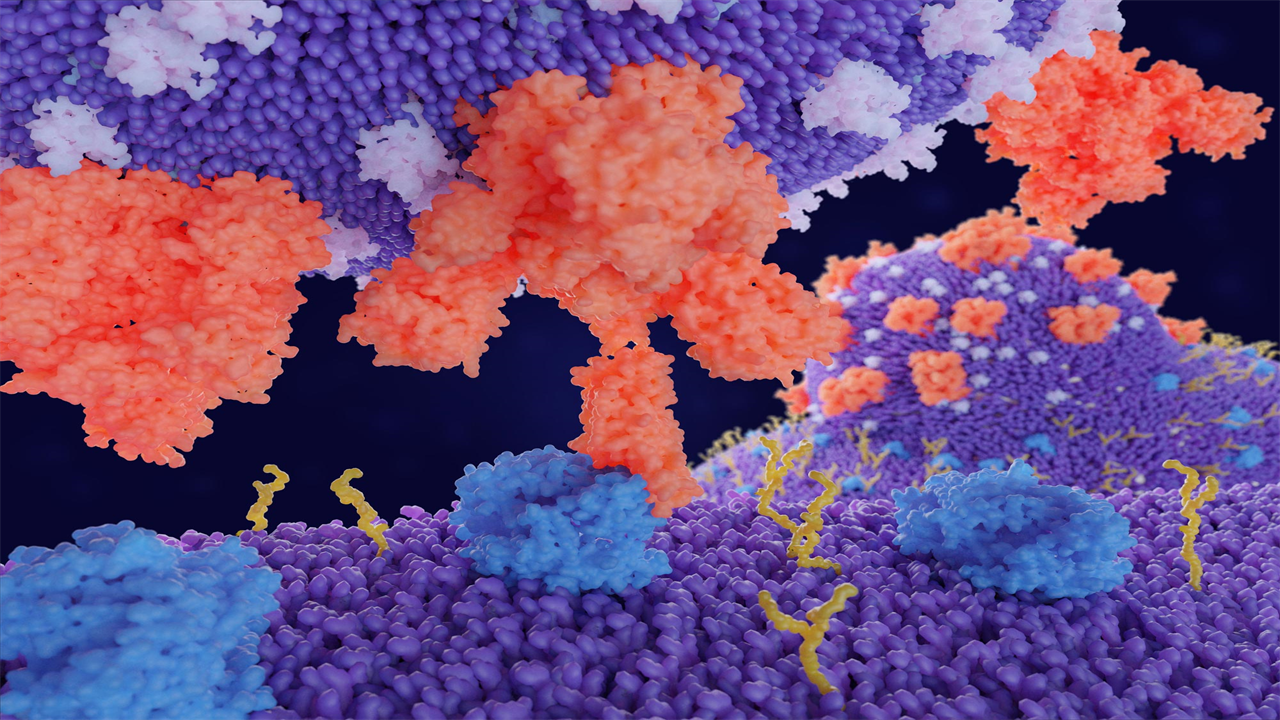Rodents Could Be Asymptomatic Carriers of SARS-Like Coronaviruses
0 View
Share this Video
- Publish Date:
- 18 November, 2021
- Category:
- Covid
- Video License
- Standard License
- Imported From:
- Youtube
Tags

Binding of a SARS-CoV-2 spike protein (red) to an ACE2 receptor (blue) leads to the penetration of the virus into the cell, as shown in the background. Credit: Juan Gaertner, CC-BY 4.0
Some ancestral rodents likely had repeated infections with SARS-like coronaviruses, giving them tolerance or resistance to the pathogens, according to new research published today (November 18, 2021) in PLOS Computational Biology by Sean King and Mona Singh of Princeton University, US . This raises the possibility that modern rodents are reservoirs of SARS-like viruses, the researchers say.
SARS-CoV-2, the virus that causes COVID-19 infection, is of zoonotic origin — it jumped from a non-human animal to humans. Previous research has shown that Chinese horseshoe bats contain a large number of SARS-like viruses and tolerate these viruses without extreme symptoms. Identifying other animals that have adapted tolerance mechanisms for coronaviruses is important for awareness of potential viral reservoirs that can spread novel pathogens to humans.
In the new study, King and Singh conducted an evolutionary analysis across mammalian species, of the ACE2 receptors, which are used by SARS viruses to access mammalian cells. Primates had highly conserved sequences of amino acids at the sites of the ACE2 receptor known to bind SARS viruses. However, rodents had greater diversity – and accelerated evolution – in these places. Overall, the results indicated that SARS-like infections have not been evolutionary drivers in primate history, but that some rodent species have likely been exposed to repeated SARS-like coronavirus infections over a significant evolutionary period.
“Our study suggests that ancestral rodents may have had repeated infections with SARS-like coronaviruses and acquired some form of tolerance or resistance to SARS-like coronaviruses as a result of these infections,” the authors add. “This raises the tantalizing possibility that some modern rodent species are asymptomatic carriers of SARS-like coronaviruses, including those that may not yet have been discovered.”
Reference: “Comparative genomic analysis reveals different levels of mammalian adaptation to coronavirus infections” by King SB, Singh M, Nov 18, 2021, PLOS Computational Biology.
DOI: 10.1371/journal.pcbi.1009560
Funding: This work is supported in part by National Institutes of Health (NIH) R01-GM076275 (to MS) and 5T32GM007388 (to Princeton University Department of Molecular Biology). The funders had no role in the study design, data collection and analysis, the decision to publish the manuscript, or preparation of the manuscript.










